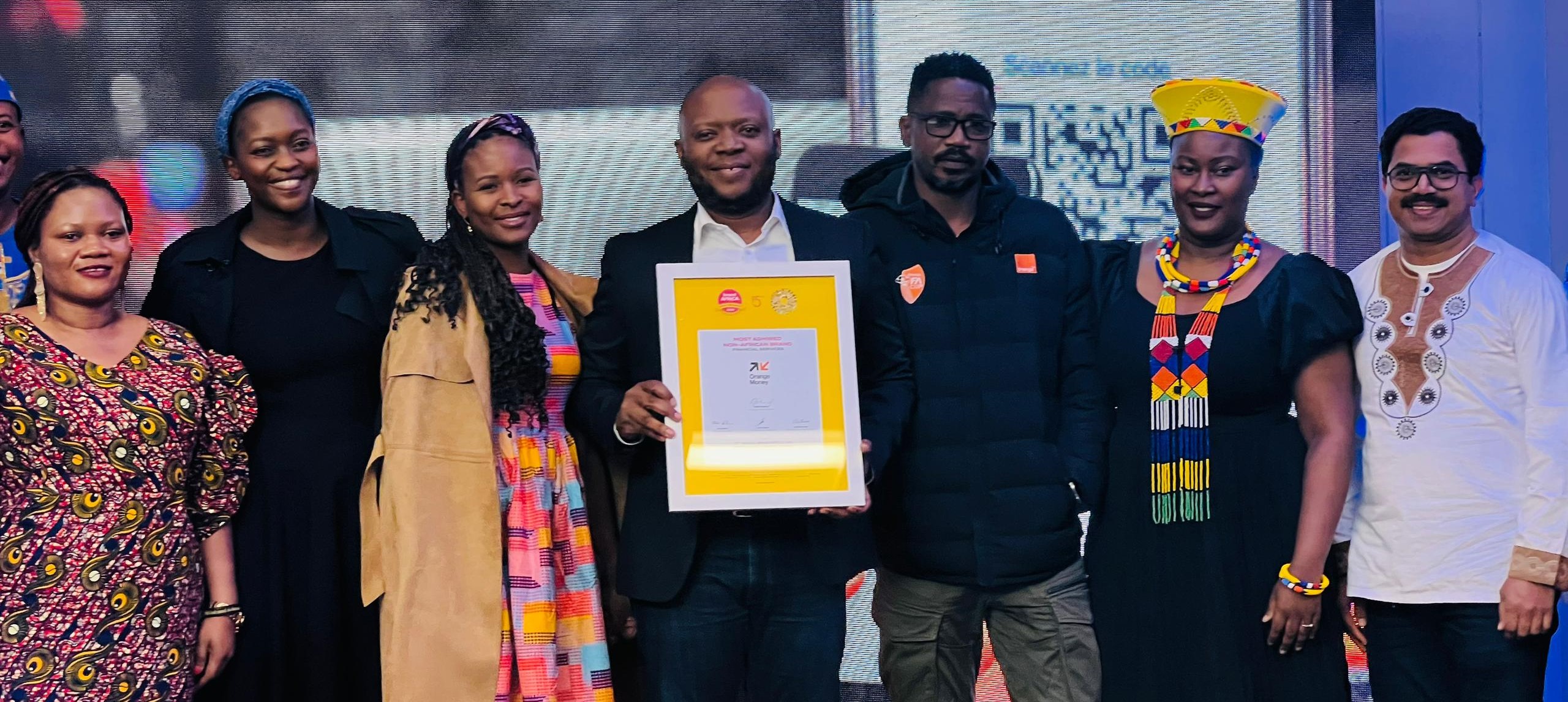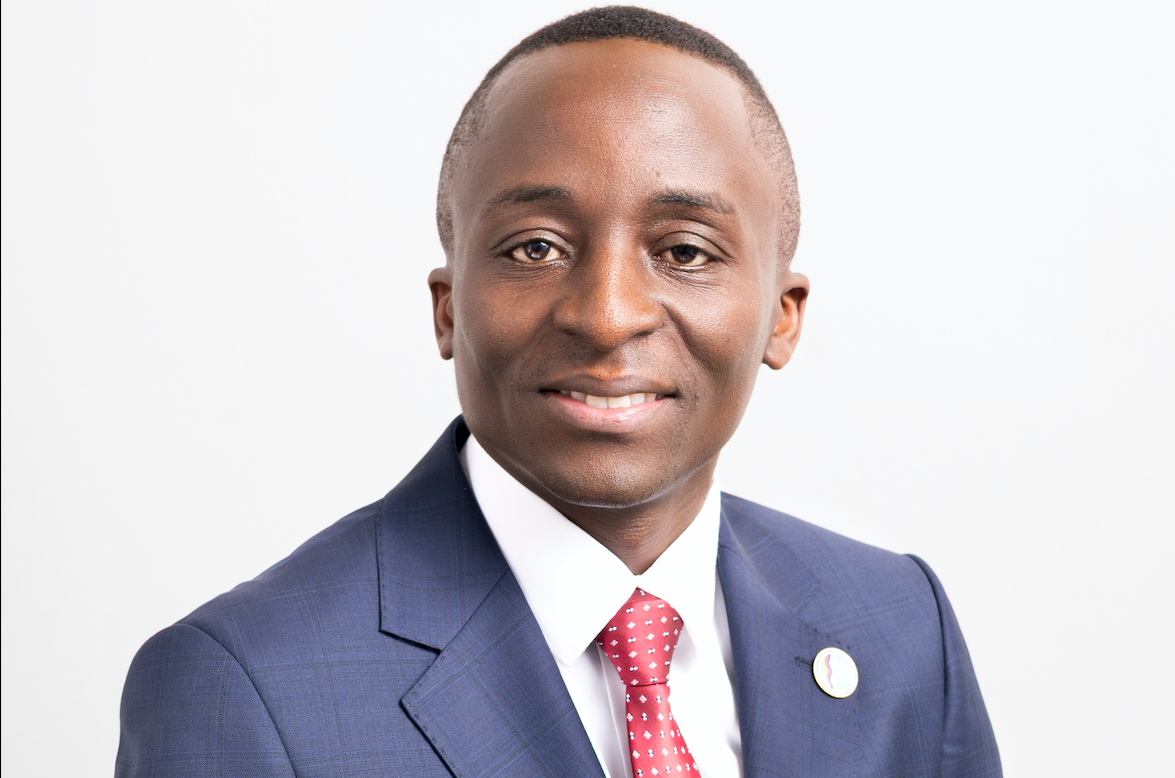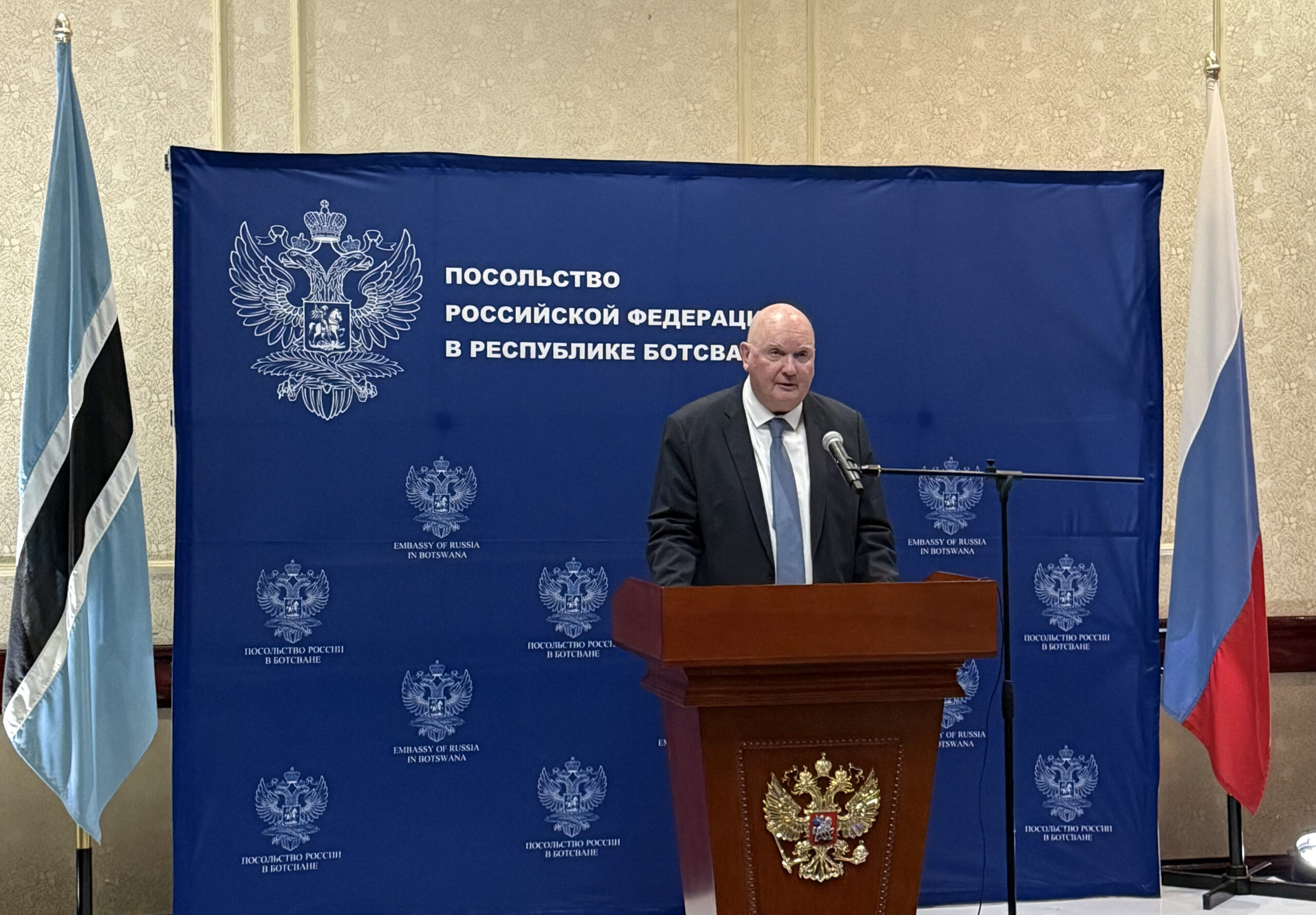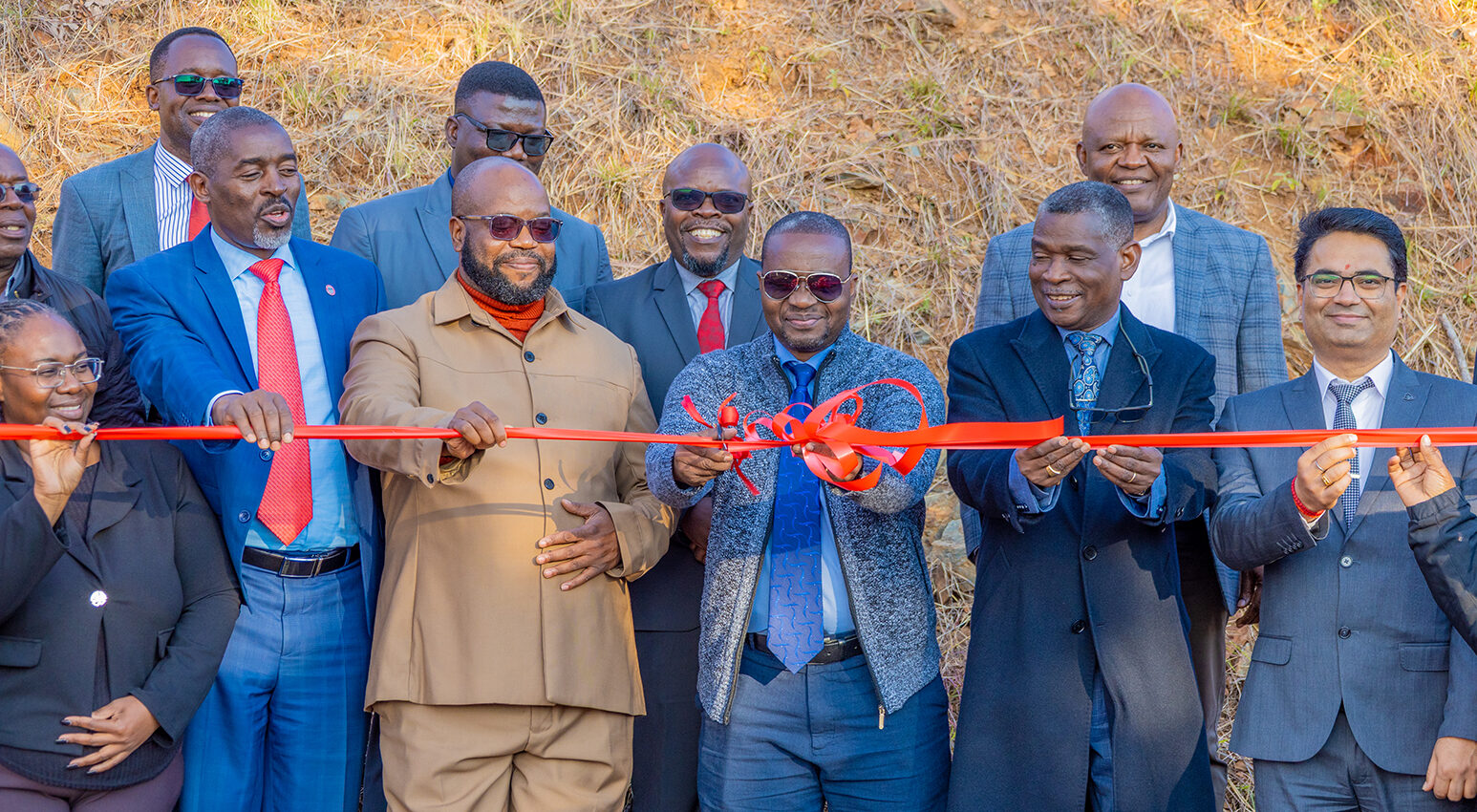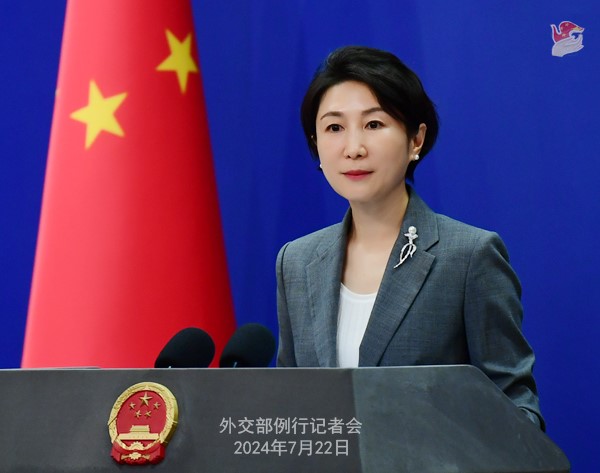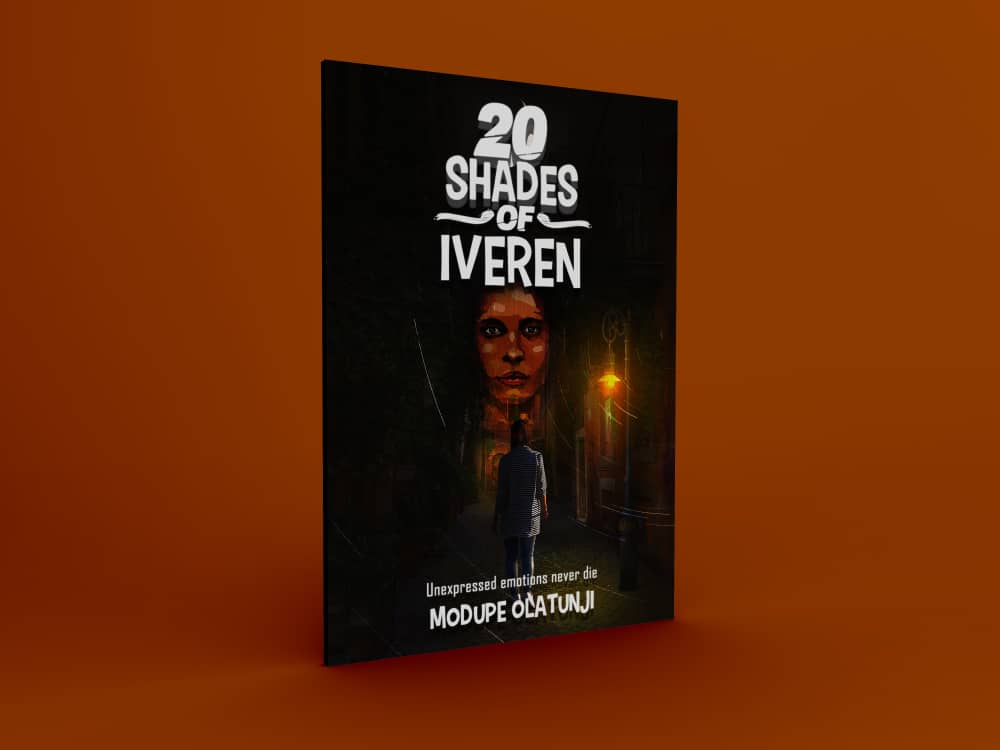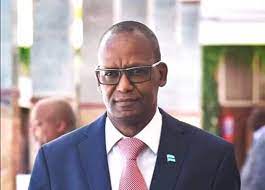
The former President of the Court of Appeal, Justice Ian Kirby was elevated to the position by then President Ian Khama
By Justice Professor Key Dingake
Justice Kirby hanged his judicial robes at the end of November 2021 after many years of distinguished service. Born in 1945, the content of his jurisprudence was in many respects generational.

Like the late Justice Scalia of the Supreme Court in the United States of America, history will confirm Justice Kirby as a brilliant conservative judge, occasionally prone to progressive impulses as his last judgment, delivered on the 29th of November 2021, a day before his last day in office shows.
Unlike any other decision he has ever delivered his last judgement dramatically expanded rights – and judicial power in a manner that is unprecedented – and it seems the timing was perfect.
In the philosophy of law, there are certain markers that point to the philosophical inclination of a judge. Elements of conservatism include willingness to limit individual rights where they conflict with government authority, preference and respect for private property; deference to governmental decisions and reluctance to upset same; concern for law and order, often over liberty and equality, less enthusiasm to embrace international law; deciding cases on narrowest of grounds, avoidance (if that is possible) to decide cases on constitutional grounds, respect of precedent (even in circumstances where the march of time dictates otherwise) and preference for textual provisions on constitutional matters and not paying much attention to the spirit thereof.
It needs to be stated that conservative judges often deliver liberal and progressive decisions, just as liberal and progressive judges may occasionally deliver conservative judgments. It is the general tendency that is a marker of the philosophical inclination of a judge.
Most judges go about their work without caring about which philosophical school of thought they belong to. In any event in the ordinary run-of-the-mill cases, this hardly matters. It does however matter in high-stake cases of constitutional importance.
In the literature on law few books qualify to be called classics. However, Benjamin N. Cardozo’s The Nature of the Judicial Process is such a classic.
If it were left for me to dictate it would be mandatory reading for every law student and every judge. Some of Cardozo’s probing reflections need to be recalled in order to give context to this piece.
In his book referred to above he ponders the following questions (which I personally find I usually confront in a number of cases of national importance):
“What is it that I do when I decide a case? To what sources of information do I appeal for guidance? In what proportion do I permit them to contribute to the result? In what proportion ought they to contribute? If a precedent is applicable, when do I refuse to allow it?
If no precedent is applicable, how do I reach a rule that will make a precedent for the future? If I am seeking logical consistency, the symmetry of the legal structure, how far shall I seek it? At what point shall the quest be halted by some discrepant custom, by some consideration of social welfare, by my own or the common standards of justice and morals”?
The above summarises questions that often crop up in a judge’s mind when deciding a verdict of a matter and provides a context of my interrogation of justice Kirby’s contribution to our law through an assessment of a cross-section of some of his defining cases.
This is so because the best way of paying tribute to a judge is through consideration and assessment of his jurisprudential trajectory that lays bare his contribution to law and reveals his legacy. Justice Kirby’s contribution to our law is undeniable.
Our law reports are littered with many of his decisions. However, the following easily stand out for their jurisprudential brilliance or lack thereof: These are Attorney-General v Motshediemang; Attorney General v Peter Ogbal Paul, Attorney General v Mothusi, Kajabanga v Attorney-General v Kajabanga, Attorney General v BOPEU, Hands-up Case (involving the Speakership of the National Assembly) Attorney General v Tapela and Others, Attorney General v Rammoge and Others, Mzwinila v Attorney General, Patson v Attorney General, and Boko and others v IEC.
I will discuss a few of these cases below.
It is of course true that no judge ascends to the bench as an ideological virgin. We all come to the bench from different backgrounds that often have a bearing on how we engage with the law. Justice Kirby is no exception.
His world outlook that was mirrored in his judgements may have been at variance with those who grew up in circumstances different from his. In his days as a practicing lawyer, he ran a successful law firm with significant corporate clientele. He was also the legal advisor of choice by those at the top echelons of power and their associates for a very long time.
He later rose to become the Attorney General of the Republic – and then judge of the High Court, before being elevated to head the Court of Appeal, by President Ian Khama.
In our constitutional arrangement, the President of the Court of Appeal and Chief Justice are gifts to the nation from a sitting President. Botswana remains one of the few countries where the appointment of Chief Justice and President of Court of Appeal is the sole prerogative of the President. The Judicial Service Commission is not involved nor Parliament or the and Civil Society.
Critics have bemoaned political considerations that often inform such appointments. In South Africa, there is scholarly literature that suggests that the ANC appointments of heads of the judiciary and other members of the Bench are often intended to secure hegemonic control of all levers of power in society.
As an Attorney General Justice Kirby came to know what drove the passage of certain laws and the general executive policy of which he was an integral part. As Deputy Attorney General, Justice Kirby was the lead counsel for the government in the seminal case of Dow v the Attorney General.
In that case, he argued against the expansion of rights, asking the court to uphold the Citizenship Act that discriminated on the basis of sex. He passionately argued that were the court to strike down the Citizenship Act, the judgment would be at odds with the patriarchal values upon which the nation was built.
His arguments in the Dow case set him apart as an originalist. Originalism is a strand of conservatism that says words in a constitution should be interpreted as they were understood at the time they were written – in accordance with the thinking of those who drafted the constitution.
The majority of the justices repudiated his submissions, holding that a constitution is a living organism, one that evolves, changes over time, and adapts to new circumstances, without being formally amended.
It is pleasing that in Motshediemang Kirby P in his last day at the bench clearly came to terms with this realisation – thereby conceding by parity of reasoning – that indeed through their interpretative power judges do make law – something that positivist judges often consider blasphemous.
It may well be that the jury is still out whether justice Kirby now embraces the logic of the Dow case wholeheartedly or not. Some progressive elements of the bar and the bench are relieved that he never tossed it out of the window when he could have, was he so inclined?
In his days in legal practice, human rights litigation was not one of his main assignments. As those familiar with the law – in particular human rights discourse, may well know, rights claims and rights rhetoric in the struggle of the oppressed and the poor – entails elements of both possibilities as well as limits when considered in the light of emancipation and freedom projects.
The Law as written is not always clear. I know it is the weakness of many of us in the legal fraternity to speak of law as a set of neutral rules – something that in truth is pure fiction – in most cases, if not in all.
Sometimes we speak of law as a self-contained subject – something to be examined like a laboratory specimen in a test tube – yet the law as is and the law as it ought to be is a complex phenomenon.
It is this complexity, (also explained by the background of the judge) that may explain why judges may not agree with each other on a matter, including on whether to embrace or discard technicalities in any matter.
When the law’s intention is unclear it behooves the judges to give meaning to the words employed by legislation to advance justice – this being the ideal. Too often owing to many factors, we the judges, can occasion injustice in our interpretation of the law.
As I often say in the hands of men and women of goodwill and learning the law can be a force for good, but in some hands, the law can be a force for bad things. It can be an instrument of oppression. It can be used to suffocate democracy and suppress rights.
The latter explains why progressive judges are always alert to ensure that law does not result in injustice. Unjust laws are not consistent with constitutionalism and the rule of law.
Overall the Kirby court was restrained and brilliant in its genre of conservatism. The case of Motshediemang is evidence of the latter. In a stroke of a pen, he ended the long and tortuous road to equality of gay people.
I was reminded of this long and tortuous road by a piece written by, Zackie Achmat, that indefatigable human rights defender, recently, when he reflected on a union of gay men, one Khoi and the other a Dutch sailor, way back in 1735, who for their love for each other were brutally murdered.
In truth, our constitution never denied the right to equality for gay men. It was society and the judges who did – some arguing that the time is not right to extend equal rights to gay persons – forgetting the self-evident truth that we are all born equal and that rights are not negotiable – not even with judges.
It ought to be remembered that the Motshediemang case was similar to the case of Kanane that preceded it. Justice Kirby was part of the panel that sat in Kanane. In Kanane he agreed with the other justices and refused to strike down the offensive legislation.
The same legislation he struck down in Motshediemang. There is no doubt in my mind that Kanane was wrongly decided at the time, as several of my writings thereafter contended, having regard to the legal injunction to always interpret constitutional rights liberally and to treat the constitution as a living organism.
In Kanane the Court of Appeal held back our march to freedom for more than a decade – and perpetuated the suffering of gay persons as their being was criminalised based on an inaccurate and narrow reading of the constitution.
The truth of the matter is that our constitution never denied gay persons the right to equality and the right not to be discriminated against. Some sections of society (maybe the majority) and the bench did so. The bench did so because of the choices they exercised.
They chose to interpret the constitution restrictively, which is not permissible; they chose to be blown away by “public opinion”, which was not right, and they chose not to read: “sexual orientation”, into Section 15 of the constitution, which they could have done.
Our constitution commands that it be interpreted in a manner that saves humanity from the scourge of indignity – and with a sense of the future – and to secure the rights of generations yet to be born.
It is always the duty of judges to breathe life into the constitution – and to effect the promise of the constitution – by among other things rejecting the tyranny of the majority.
Section 3, the principal section conferring fundamental human rights in Botswana has always been there. It was ignored in Kanane and thankfully given effect to in Motshediemang. A big lesson here is the often overlooked fact: judges matter! Who the judge is may be life-changing in any given matter.
When one considers the decision in Kanane and Motshediemang, based on similar facts and the diametrically opposed conclusions, one may be forgiven to think that may be: “the constitution is what the judges say it is”, at any given time, as that brilliant luminary judge and scholar, Charles Evans Hughes (1862 -1948) LLD, once ruminated.
A similar case to Motshediemang in Kenya may also underscore the observations of Charles Hughes.
In Kenya despite having a transformative constitution that demands transformative jurisprudence the right to equality of gay persons was denied.
This was at a time when Leburu J working only with rudimentary judicial tools – a retrogressive and time-barred constitution – was able to carve out of its terms and spirit a brilliant jurisprudential masterpiece, laced with scholarly permutations.
Leburu’s piece was not only searching and thorough; it was erudite and scholarly. He remains the judicial midwife of what is now the law in Botswana. His place in history is secured. The justices of appeal gave him credit for his rendition; which he deserved. He made their task much easier.
The Court of Appeal decision is to be celebrated for many other reasons, including that it seemed to be more receptive to comparative constitutional law and scholarly work than before – a positive development for the future of the country’s jurisprudential development.
This gives me hope that the next generation of jurists – and there are many now languishing in the periphery – will one day take up their rightful places and take the country’s jurisprudence to another level.
As indicated earlier, it may not be unfair to suggest that when it came to expanding rights the Kirby Court was largely cautious, calculating, reluctant, and occasionally brilliant.
It constrained the rights of the accused as the case of Kanjabanga would show, and was hesitant to hold the executive to account and at times exhibited breathtaking “unconscious bias” towards the executive as the Bopeu judgment discussed below may suggest.
On the whole, his judgements were carefully crafted and closely reasoned. Often his intention and sense of future direction would lie in between the lines.
In a number of cases, his nimble forensic footwork would be on full display to marvel and cherish. He would even seek to pre-empt an anticipated future argument and bury it. He used simple language to capture complex legal reasoning.
Amongst the most memorable judgements to come out of Kirby P’s pen are the Hands –up case, (on the election of the Speaker), Tiro v the Attorney General, on the proper approach to interpreting the rules of the High Court, and the case of Attorney v Peter Ogbal Paul.
The latter case concerned a judicial review of a presidential deportation order which he correctly set aside. In that case, he sought to distinguish it from the case of Good, suggesting, by implication, if not explicitly, that Good was correctly decided, a position which I do not share.
I am certain that one day the jurisprudence of Good will be peacefully buried and laid to rest on account of its intrinsic jurisprudential deficiency.
By and large Kirby’s record in public law was a mixed one. In public law, some lawyers tended to think he would fit the category of the judges that Lord Atkin considered executive-minded – and perhaps even more than the executive.
Jurisprudentially a close academic scrutiny of his judgements; how he elected to exercise the options before him, in any case, reveals him as being inclined to legal positivism. In many high stake cases of national importance, his deference to the executive was often undisguised.
The case in point was the case of Bopeu v the Attorney General. At issue was whether the public sector employees who embarked on a strike to press home their demands for better working conditions were lawfully dismissed. They had contended before the High Court and the Court of Appeal that their dismissal was unlawful because it was not preceded by a hearing.
The Court of Appeal, in a judgment penned by Kirby P, held that the dismissals were lawful in that the requirement to hear the other side before an adverse decision was taken was not breached.
Justice Kirby stressed that the strike posed a danger to the life and health of patients and that the pressing urgency of the situation occasioned by the strike and the danger it posed to life and property required that decisive action be taken to protect the public.
In order to cast doubt on the reasonableness of the workers’ demands, he cited issues of recession – and also offered his view that strikes in the public service should be a rare occurrence.
In the cause of his rendition in the Bopeu matter he would make statements to the effect that Botswana has enjoyed peace and stability for more than forty-five years since independence – a common self-praise line by members of the executive over the years – and perhaps a tagline appropriate to be issued by an Attorney General.
If ever there was a case that opened Kirby P to accusations of executive-mindedness this would be the one. The judgement as one Senior Advocate in South Africa, once pointed out, was littered with too many political statements – so many that had there been a higher court to appeal to, the possibility of the Court of Appeal being reversed existed.
In Oatile v the Attorney General, a case in which the state appealed against an order of the High Court ordering the state to pay compensation to the accused whose right to trial within a reasonable time was breached, he reluctantly embraced the novel idea, in Botswana’s jurisprudence, of the need to hold the state accountable for wrongdoing through ordering constitutional damages as a remedy. The reluctance manifested itself in the low quantum of damages the court issued.
Before then, our courts had relied on the law of delict to remedy any wrongdoing by the state and were reluctant to embrace the possibilities offered by public law – in the form of constitutional damages as an alternative.
Oatile explored two related but distinct themes: the need to hold the state accountable for its wrongdoing and the need to hold it liable to pay a monetary sum to a victim of its wrongdoing.
It boldly posited that in an appropriate case, an award of constitutional damages may be a better means to hold the state accountable for the performance of its distinctive obligations.
In 2019 Botswana held elections that were marred by allegations of irregularity. On the merits, petitioners averred, amongst other things, instances of alleged corrupt and/ or illegal practices.
These included assertions that several companies were used to launder money to pay IEC officials, that IEC officials issued more than one voters registration card in order to circumvent the requirement of one man one vote; that there was double registration of voters, that voters were paid money to vote more than once; and that voters’ rolls were falsified to favour some candidate.
Several petitions were registered challenging the undue return of members of parliament. The allegations were grave. They called into question the integrity of the elections. The High court dismissed the petitions on technicalities.
The majority of the judges dismissed the petitions on the basis that the petitions were presented to the Registrar of the High Court, outside the requisite 30 days set by Section 17 (b) of the Electoral Act, on the main, including that the petitions were not accompanied by a written notice of the presentation of the petition as envisaged by Section 118 of the Electoral Act.
An appeal to the Court of Appeal in the case of Duma Gideon Boko and Others v Independent Electoral Commission and Others was not successful. The Court of Appeal, in a judgement penned by Kirby P, held that it had no jurisdiction to entertain the appeal.
Surprisingly, the court then proceeded to give a 70 page or so rendition that appeared to veer into the merits of the dispute. Surprisingly, a court without jurisdiction went so far as to make it clear that it disagreed with the dissenting judgments in the three sets of petitions delivered by the High Court.
This is one case in which finding my own position with respect to the conclusion of the court that it had no jurisdiction was difficult. I found myself overruling my previous day’s conclusions ad Infinitum. I confessed this recently to one judge after engaging in the across –oceans midnight debate on the matter.
Could it be, I asked myself, that the case of Gideon Boko would in the future be remembered as a case that held back the tectonic plates of power from shifting? This was not an easy case. The force and weight of section 106 of the constitution were unmistakable.
Perhaps the potential of section 7 of the Court of Appeal Act as a logjam breaking mechanism was not fully and exhaustively interrogated. The dismembering of the section and assigning adverse meaning to the first limb of the section and not interrogating the potential of the second limb may explain the conclusion reached by the court.
And my rumination continues: could it be that even a full interrogation of the section could have cum to a judicial cul-de-sac.? Without the benefit of full argument on the point, I cannot adequately proffer an informed opinion on same.
It may well be true that although we may never know with complete certainty the winner of the 2019 general elections because the merits were never traversed and the Court of Appeal denied jurisdiction, the identity of the loser is clear: it is the people’s confidence in an electoral regulatory framework that denies aggrieved parties access to the apex court and in the ability of the rule of the law and the judges to hear them out – to listen to what it is they say happened.
In the discipline of criminal law, Kirby P tended to embrace a restrictive approach as in public law. Two examples would suffice: In Lyndon Mothusi v the Attorney General, he suggested that the right to speedy and expeditious trial did not include an appeal.
And in Attorney-General v Kanjabanga, he diluted the time frames that were more favourable to the accused as to when the clock starts ticking, set out in the famous case of Sejammitlwa when determining an application for permanent stay of prosecution.
Justice Kirby had a deep influence on the development of the law in our country. He was a remarkable man of the law in many respects, but more significantly he was a product of his generation and the circumstances under which he grew.
All those influences found their way into our law in one form or another – because the truth of the matter is that no judge ascends to the bench as a virgin.
He had the power during his tenure to live the true values of the judiciary by reforming the process of appointment to the court of appeal to ensure that appointments to the apex court, out of respect of the people who delegated judicial power to the court (“we the people”) and the litigants, were done transparently and based on merit.
He failed to do so.
He opened himself to accusations of privatisation of the judiciary and that he had turned the judiciary into a “private spaza”. These accusations stigmatised the Court of Appeal and would hurt his legacy badly.
It is important to remember that the court exercises delegated judicial power from the people. Secrecy can never be in the public interest. It is imperative that the leadership of the judiciary must conduct themselves in a manner that promotes the respect and dignity of the court.
The dignity of the court is maintained better by being transparent, fair and appointments merit-based.
As an administrator, justice Kirby was efficient. In my experience, he executed all tasks assigned to him in time. I was privileged to work closely with Kirby P on many occasions, twice or so as an acting justice of appeal at the instance of Nganunu and Dibotelo CJ.
I chuckle, on reflection, recalling what both Chief Justice Dibotelo and Nganunu said to justify enrolling me to sit together with justice Kirby, in the Court of Appeal, in the few cases we did. That they all had the same reasons was to my mind interesting and revealing.
Chief Justice Dibotelo also appointed me to a committee that Kirby J (as he then was) chaired. The other member was Phumaphi J. He is a hard worker who executed assignments on time as agreed and is excellent at drafting whatever the committee may have agreed upon. It appeared drafting was second nature to him.
Fare thee well my brother.
You worked hard for the republic over the years. You deserve to rest. Some elements in the bar and academia liked portraying us as ideological opposites.
I do not know how true that is. History shall be the ultimate judge. I have read many of your judgements with profit. Find time to write and let us compare notes.
- Hon Professor Justice OBK Dingake, PhD – Justice of the Court of Appeal of Seychelles and the National and Supreme Court of Papua New Guinea.
